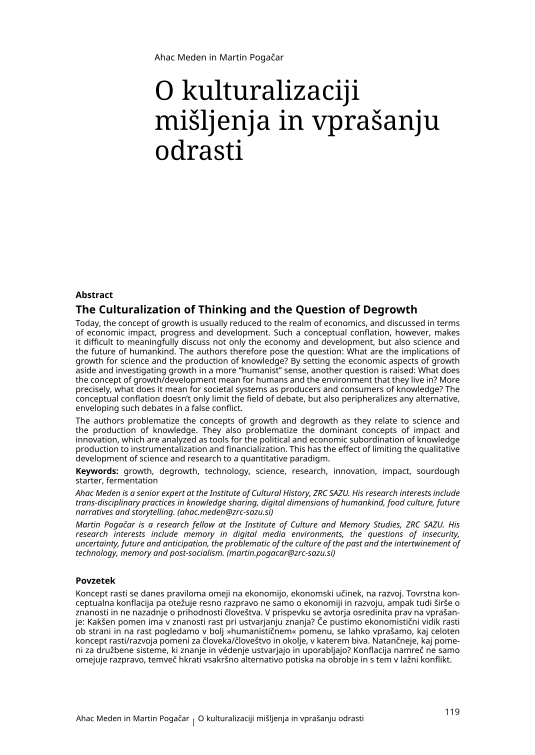Today, the concept of growth is usually reduced to the realm of economics, and discussed in terms of economic impact, progress and development. Such a conceptual conflation, however, makes it difficult to meaningfully discuss not only the economy and development, but also science and the future of humankind. The authors therefore pose the question: What are the implications of growth for science and the production of knowledge? By setting the economic aspects of growth aside and investigating growth in a more ‘’humanist’’ sense, another question is raised: What does the concept of growth/development mean for humans and the environment that they live in? More precisely, what does it mean for societal systems as producers and consumers of knowledge? The conceptual conflation doesn’t only limit the field of debate, but also peripheralizes any alternative, enveloping such debates in a false conflict.
The authors problematize the concepts of growth and degrowth as they relate to science and the production of knowledge. They also problematize the dominant concepts of impact and innovation, which are analyzed as tools for the political and economic subordination of knowledge production to instrumentalization and financialization. This has the effect of limiting the qualitative development of science and research to a quantitative paradigm.




